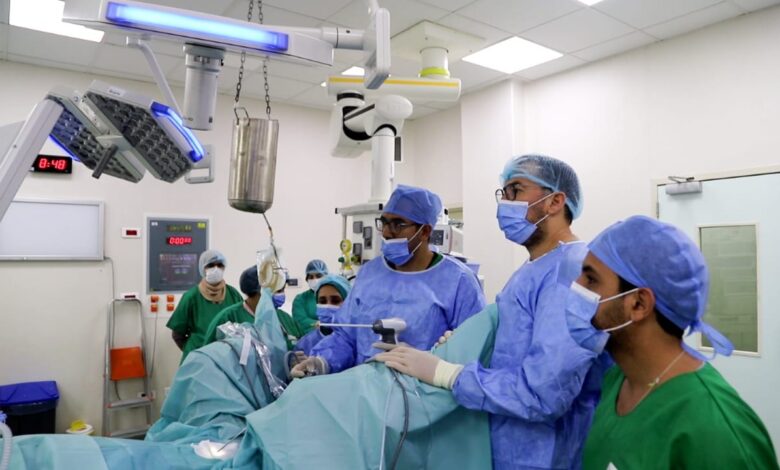Moroccan Doctors Adopt Innovative “Rezum” Technique to Treat Benign Prostatic Hyperplasia

Moroccan Doctors Introduce Innovative Non-Surgical Treatment for Benign Prostatic Hyperplasia
In a significant advancement for the healthcare sector in Morocco, doctors at the Cheikh Khalifa International University Hospital have successfully introduced an innovative and non-surgical therapeutic technique for treating benign prostatic hyperplasia (BPH). This technique, known as "Rezum," utilizes steam to effectively and safely reduce prostate volume while preserving the patient’s quality of life and sexual function.
The initial procedures were successfully conducted under the supervision of Professor Abdeljalil Haddat, head of the urology department, on a carefully selected group of patients. Preliminary clinical results have demonstrated the effectiveness of this new approach, along with a rapid recovery for patients, without the need for surgery or extended hospitalization.
Professor Abdeljalil Haddat stated:
"The introduction of the Rezum technique at our hospital marks a significant step forward in the treatment of benign prostatic hyperplasia. It offers an innovative and minimally invasive therapeutic solution, with promising clinical outcomes and tangible benefits for patients. With this method, we can now provide an efficient and swift treatment that respects sexual function and quality of life."
This medical achievement affirms the commitment of Cheikh Khalifa Hospital to adopting the most advanced care technologies and providing high-level healthcare services that meet international standards. It also strengthens its position as a reference institution at both the national and regional levels in the field of urological surgery.
About the Rezum Technique:
Rezum is an innovative, non-surgical therapeutic method that uses steam to reduce enlarged prostatic tissue. This improves urinary flow and alleviates symptoms associated with benign prostatic hyperplasia, all while safeguarding sexual function and eliminating the need for prolonged recovery periods.






